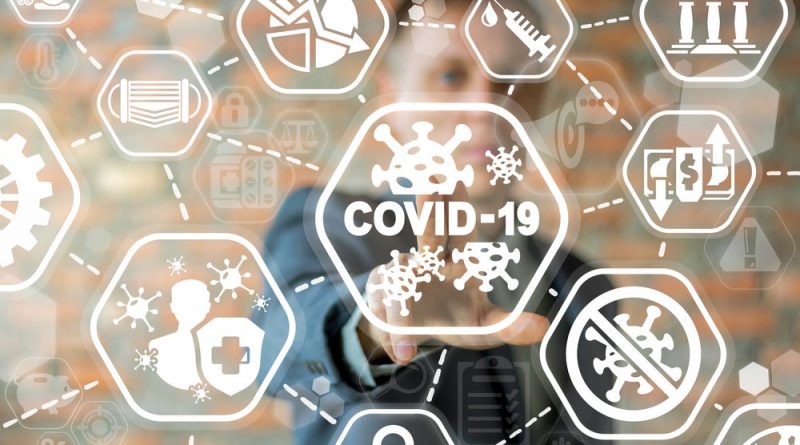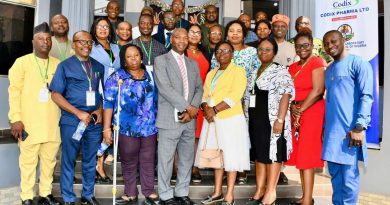MLSCN COVID 19 Advisory to all Directors / Head Medical Laboratory Services
The Medical Laboratory Science Council of Nigeria in line with its regulatory functions and mandate has viewed the emergence of the pathogen identified as Corona Virus (Covid-19) and other related pathogens with concern based on both the mode of transmission, the pathogenicity, the social and economic impact of the disease and thus is providing this guidance on laboratory safety related to the protection of Medical Laboratory Science Practitioners and the testing of specimens of patients to ensure that Medical Diagnostic Laboratories adhere to appropriate safety measures. Any testing for the presence of Covid-19 or clinical specimens from patients meeting the suspect case definition should be performed in appropriately equipped laboratories by staff trained in the relevant technical and safety procedures.
KEY POINTS:
- All personnel involved in testing must be trained and licenced by the Medical Laboratory Science Council of Nigeria and must be aware of hazards present in the laboratory and their associated risks, safe working procedures, security measures, and emergency preparedness and response.
- Any specimen received by the laboratory must be accompanied by sufficient information to identify what it is, when and where it was taken or prepared, and which tests and/or procedures (if any) are to be performed.
- All procedures must be performed based on risk assessment and adequacy of existing control measures. Laboratories should not conduct testing if they are not adequately equipped to do so.
- When handling and processing specimens, including blood for serological testing, laboratory practices and procedures that are basic to Good Microbiological Practices and Procedures (GMPP) should be followed.
- The handling and processing of specimens from cases with suspected or confirmed Covid-19 infection intended for additional laboratory tests such as haematology or blood gas analysis should follow local guidelines for processing potentially infectious materials.
- Processing of all specimens should take place in a validated biological safety cabinet (BSC) or primary containment device.
- All specimen transported within and between laboratories should be appropriately packaged with the triple packaging instructions to minimize the potential for breakage or spill.
The under-listed good laboratory work practices should be adhered to:
- Laboratory workers should wear Personal Protective Equipment (PPE) including disposable gloves, solid front or wrap-around gowns, scrub suits, or coveralls with sleeves that fully cover the forearms, head coverings, shoe covers or dedicated shoes, eye protection (goggles or face shield).
- Risk assessment should inform the use of respiratory protection (fit-tested particulate respirator, e.g. EU FFP2, US 6 NIOSH-certified N95 or equivalent, or higher protection).
- ALL staff and visitors to the laboratory should have their temperature checked.
- Appropriate disinfectants with proven activity against enveloped viruses should be used (e.g. hypochlorite (bleach), alcohol, hydrogen peroxide, quaternary ammonium compounds and phenolic compounds).
- A dedicated hand-wash sink should be available in the laboratory. Thoroughly wash hands with soap and running water for 2-3 minutes.
- Centrifugation of specimens should be performed using sealed centrifuge rotors or sample cups. These rotors or cups should be loaded and unloaded in a BSC.
- Never store food or drink, or personal items such as coats and bags in the laboratory. Activities such as eating, drinking, smoking and/or applying cosmetics are only to be performed outside the laboratory.
- Never put materials, such as pens, pencils or gum in the mouth while inside the laboratory, regardless of having gloved hands.
- Ensure that coverings are placed over any cuts or broken skin prior to entering the laboratory.
- Ensure proper labeling of all biological agents, chemical and radioactive material.
- Ensure work is performed with care, in a timely manner and without rushing. Working when fatigued should be avoided.
- Keep the work area tidy, clean and free of clutter and materials not necessary for the work being done.
- Appropriately cover or remove any jewelry which could tear glove material, easily become contaminated or act as a fomite for infection.
- Keep mobile electronic devices in areas where they could not easily become contaminated or act as a fomite for infection.
- Discard specimens and cultures for disposal in leak-proof containers with tops appropriately secured before disposal in dedicated waste containers.
- Decontaminate work surfaces with a suitable disinfectant at the end of the work procedures
Please report any suspicious case to the nearest health authorities.
Due to the higher likelihood of the infection spread in crowded gathering and in line with the power of SOCIAL DISTANCING, MLSCN is hereby suspending ALL Official activities (Inductions, Accreditations, Inspections, Meetings etc.) for a period of Six (6) Weeks with effect from 23rd March, 2020.
DR. TOSAN ERHABOR
Registrar/CEO




